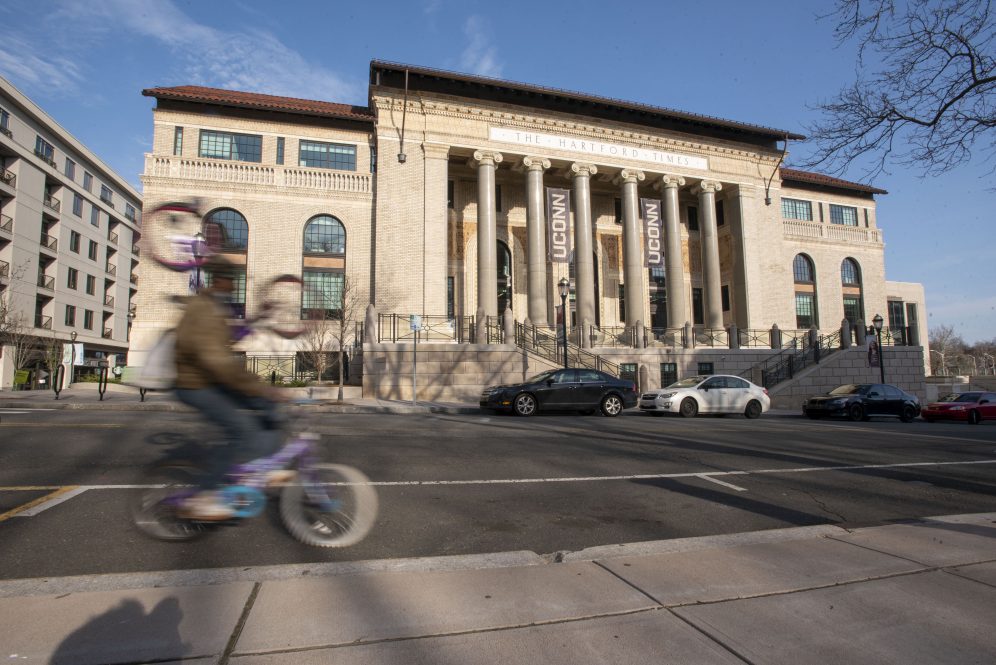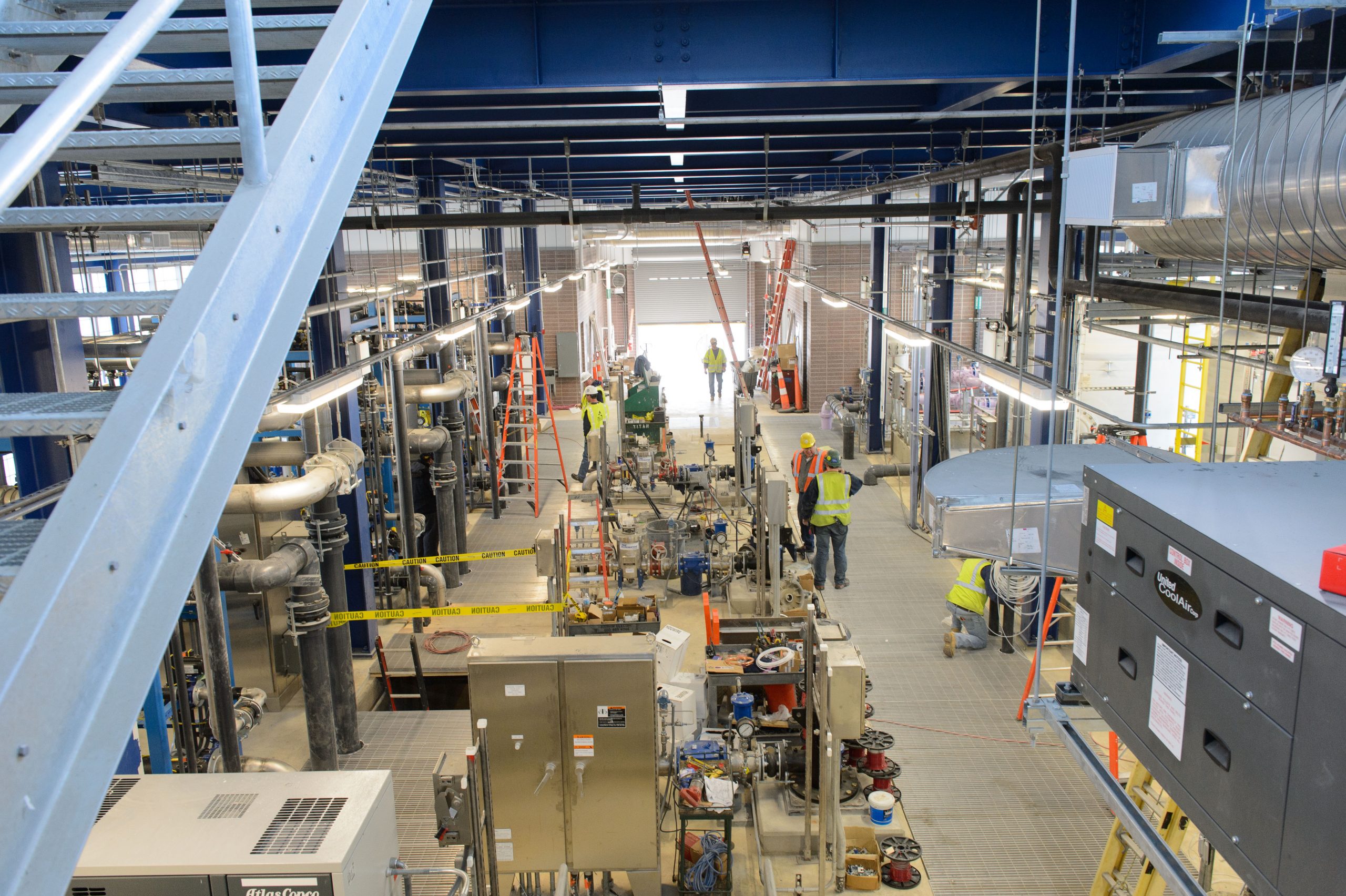UConn is deepening its Hartford roots with plans to offer 200 beds of student housing in a downtown building adjacent to bustling businesses, food and entertainment venues, and space that the University is also refurbishing for academic and research use.
The UConn Board of Trustees on Wednesday approved a plan to lease space at 242 Trumbull St., where the building’s owner would develop about 50 four-person units in the building’s rear area facing the vibrant Pratt Street and known as the Annex.
The units would be available for rent to UConn Hartford students starting in August 2026 if the State Bond Commission approves the financing elements involving the building’s owner and the Capital Region Development Authority; and if the owner’s construction stays on schedule.
Shelbourne Pratt Development owns the eight-story commercial building and plans to convert the four-story Annex into modern apartment-style units. UConn would then lease the space and offer it as student housing with a hall director and resident assistants, similar to the master lease and partnership in place at UConn Stamford.
The move is one of many in which UConn is working to deepen its ties with the capital city, where the University is also refurbishing space near the XL Center for academic and research use, and is opening a café for students in fall 2025 in the Hartford Times main campus building.
UConn opened the Hartford campus downtown in 2017, and has worked since then to position it as a centerpiece of a thriving capital city by bringing people downtown to learn, live, and support the regional economy.
“When UConn Hartford opened its doors seven years ago, the vision included developing deep ties to the city and its residents, synergies with local businesses and organizations, and fruitful connections with city and state government agencies,” says Anne D’Alleva, UConn’s provost and executive vice president for academic affairs.
“Since that time, the campus has become both a center of learning and a center of community. The addition of student housing nearby would add to that vision immeasurably,” she adds. “We’re excited about what’s ahead as UConn’s roots continue to strengthen and deepen in Hartford in the coming years and decades.”
Interest in student housing has grown along with the campus population. UConn Hartford’s undergraduate enrollment grew by about 18% between fall 2017 and fall 2023, and an increasing number of students are choosing to start their UConn careers there.
In the most recent academic year, for instance, UConn Hartford had about 544 first-year students who entered in fall or spring; in the coming academic year that starts in August, the University projects about 595.
UConn surveyed undergraduate students at the campus in 2023 to assess their potential interest in student housing, and the results were clear: About 70% of the respondents expressed interest. However, since most said they lived with their parents, about half of them said the rent would need to be affordable to make it a viable option.
In addition to being close to potential employers and local businesses, the new student housing would be adjacent to 229 Trumbull St., an office building that fronts the XL Center and is being renovated to house UConn’s Research Innovation Center.
The space will house lecture halls, academic centers, classrooms, and faculty offices, providing opportunities to partner on support for community engagement, and on research projects and research grants.
The University of St. Joseph leased the space from 2011 through 2022, so it already is mostly ready for UConn to use without major structural renovations to the exterior or the interior layout.
It is expected to be ready for use in the coming fall semester once UConn installs telephone, data, and wireless systems, security systems, audio-visual systems, and related amenities.
To support use of the space, UConn also is leasing parking spaces in the Church Street Garage nearby for staff, faculty, and students who will access it with assigned key cards.
While the refurbishments are going on this summer at the XL Center space, another project is planned for the main campus in the Hartford Times building: a café where students can use a University dining plan to get meals and snacks between classes, helping ensure they have access to food without needing to go home if their schedules are tight.
The University originally envisioned operating a student-centric café there when it designed and opened the building, but held off in hopes that more quick-service public cafes and takeout dining options might open adjacent to the campus.
The café is anticipated to open in fall 2025. It will operate separately from the Husky Harvest food pantry, which helps to address food insecurity by providing food and other items that people can take home to prepare meals. UConn now has similar food pantries at all of its campuses, including UConn Health.
“These new and exciting living, research, teaching, and dining spaces in Hartford will expand the opportunities for our students as they connect to and learn from the rich resources the capital city has to offer. They also underscore UConn Hartford’s partnership commitment to the city as an anchor institution,” says Mark Overmyer-Velázquez, UConn Hartford’s dean and chief administrative officer.


